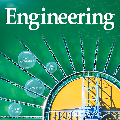In situations involving teams of diverse robots, assigning appropriate roles to each robot and evaluating their performance is crucial. These roles define the specific characteristics of a robot within a given context. The stream actions exhibited by a robot based on its assigned role are referred to as the process role. Our research addresses the depiction of process roles using a multivariate probabilistic function. The main aim of this study is to develop a role engine for collaborative multi-robot systems and optimize the behavior of the robots. The role engine is designed to assign suitable roles to each robot, generate approximately optimal process roles, update them on time, and identify instances of robot malfunction or trigger replanning when necessary. The environment considered is dynamic, involving obstacles and other agents. The role engine operates hybrid, with central initiation and decentralized action, and assigns unlabeled roles to agents. We employ the Gaussian Process (GP) inference method to optimize process roles based on local constraints and constraints related to other agents. Furthermore, we propose an innovative approach that utilizes the environment's skeleton to address initialization and feasibility evaluation challenges. We successfully demonstrated the proposed approach's feasibility, and efficiency through simulation studies and real-world experiments involving diverse mobile robots.
翻译:暂无翻译










































